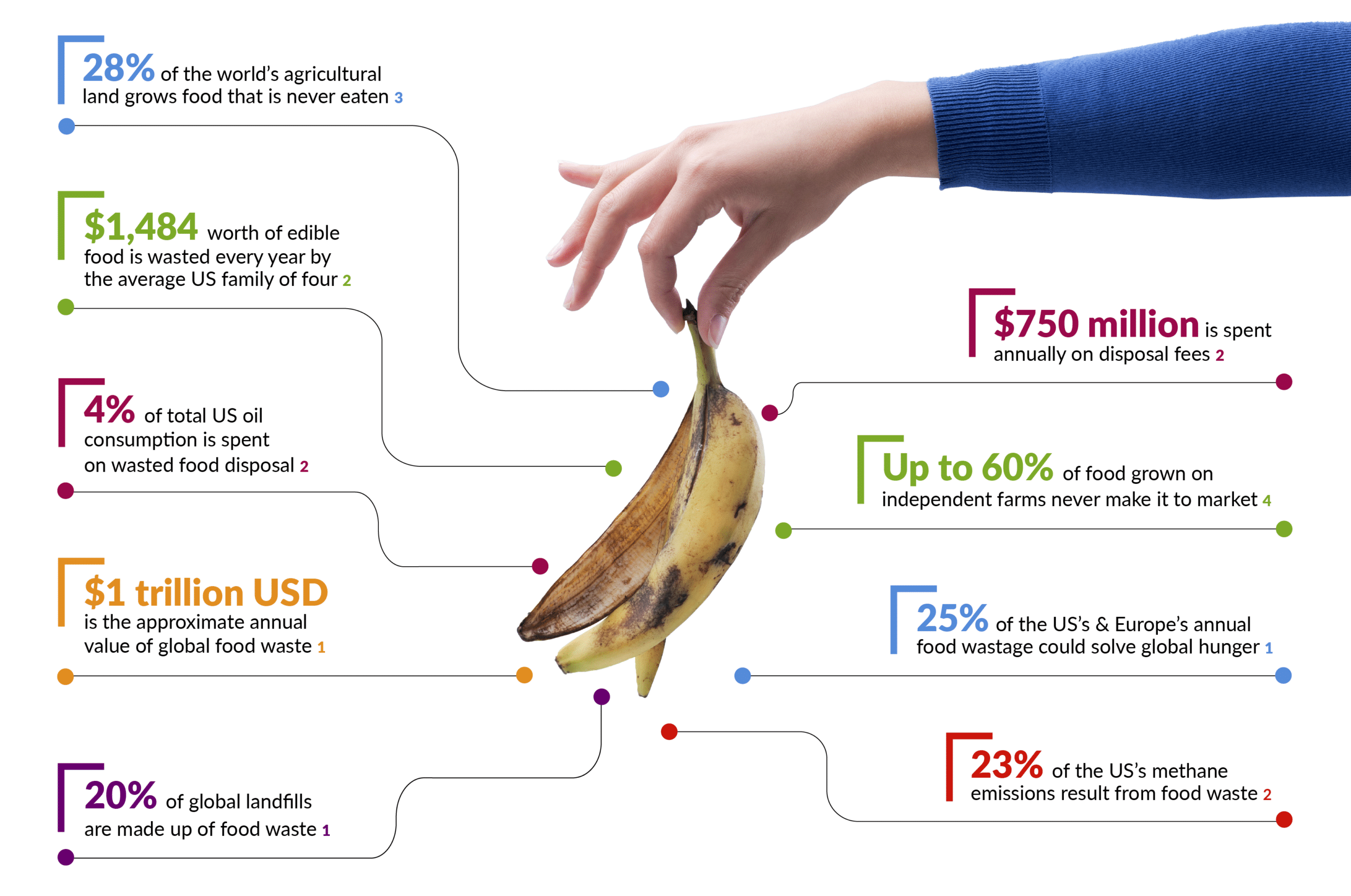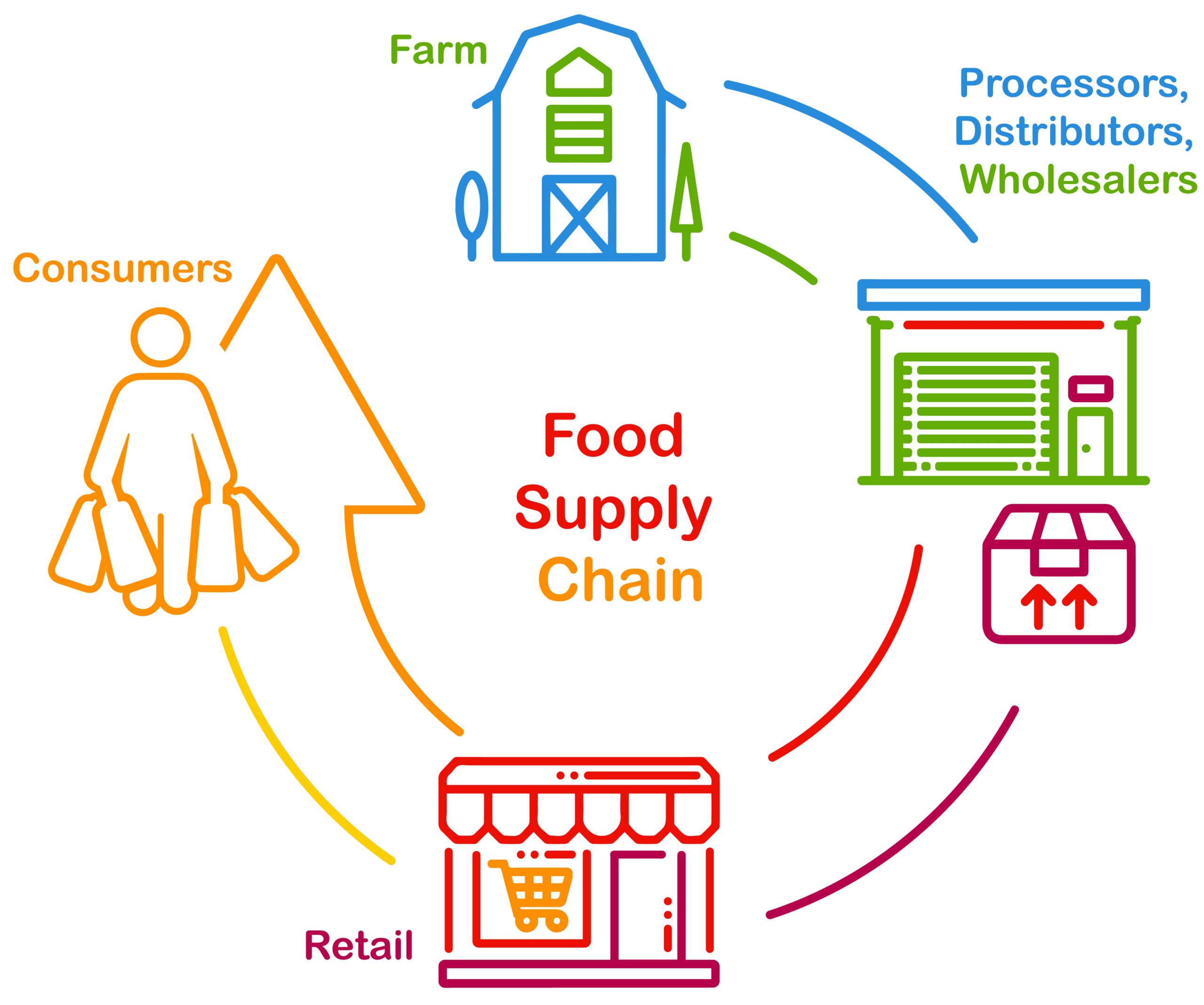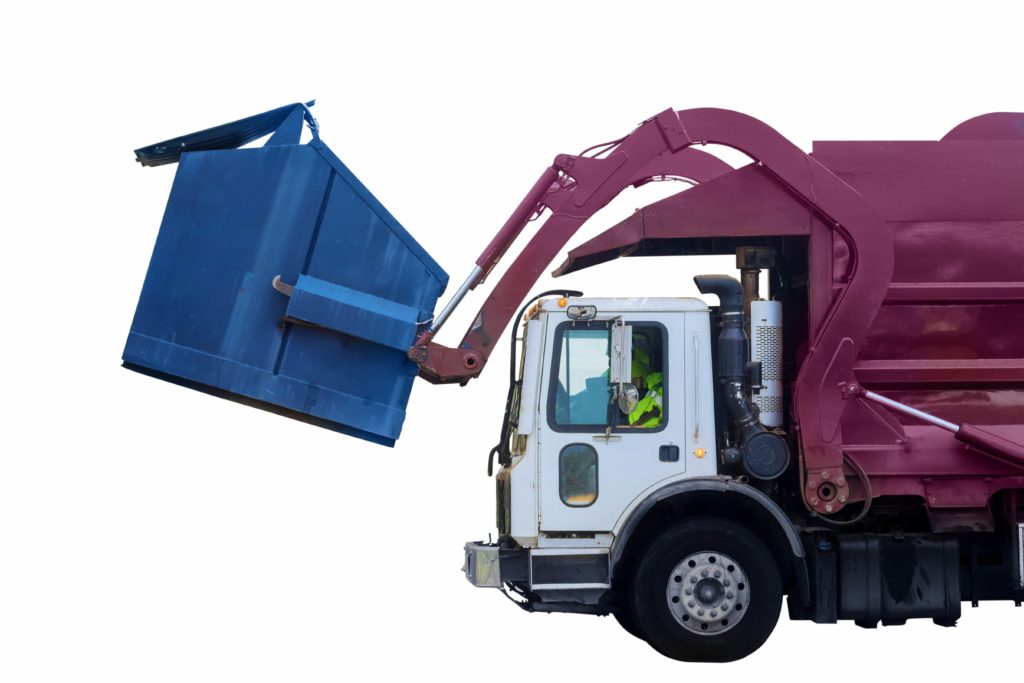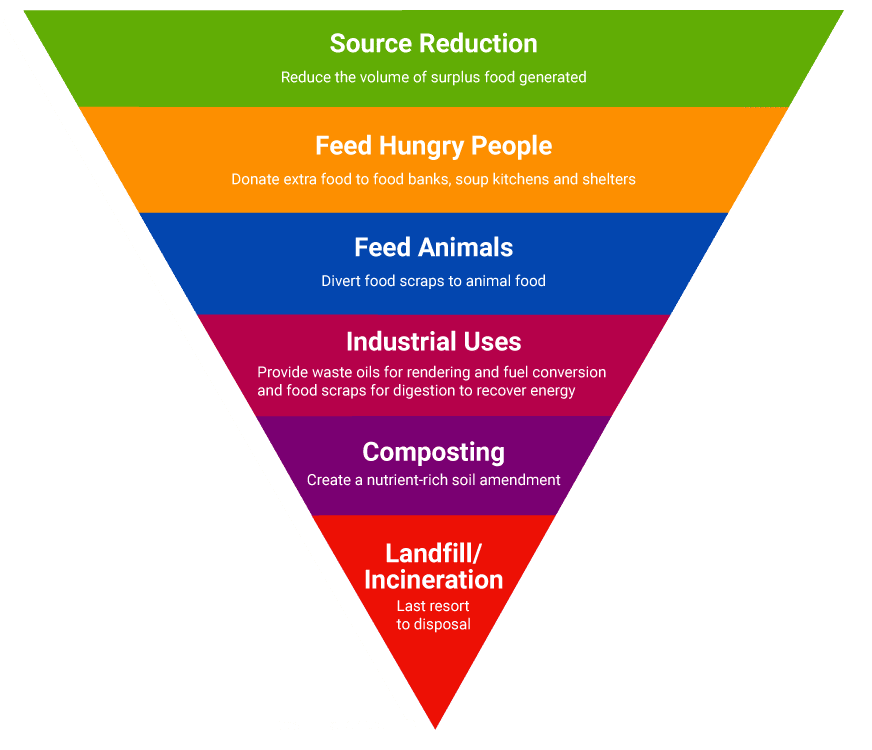
It’s time to rethink food waste


The Facts

Waste along the supply chain
Food waste and food loss are generated at every stage of the distribution system. From farm to distributor, and then from retailer to consumer, each additional layer not only increases cost and complexity but also leads to greater loss. Therefore, reducing food waste and food loss can ultimately lessen the burden on the agricultural and waste management systems.*
Consider this: with each layer added from farm to table, another day is introduced into the process. Consequently, improper handling, incorrect storage, drops, spills, damage, and pests become more likely, exacerbating financial and carbon impacts. Additionally, long transportation times result in 15-20% of product damage before items even reach consumers .* This not only affects farmers but also compels middle handlers to apply increasingly large markups on each product due to the inevitable receipt of damaged or unsellable crops. As a result, the entire system becomes more strained and inefficient.*

ORCA's Mission For Less
Food waste is one of the largest causes of anthropogenic climate change, with traditional waste disposal exacerbating an already broken system. ORCA technology was designed with one primary goal in mind: to take every garbage truck off the road. While this vision may seem straightforward, the underlying message is so much deeper. By removing garbage trucks from organic waste management, we are also removing the financial, operational, and environmental complexities associated with traditional waste management systems.
Consequently, we are making significant strides toward lessening our impact on the planet. This is the foundation from which the concept of “Less Food Waste” emerges. Let’s talk about less.
ORCA strives to create an intuitive, organic waste management system that streamlines data collection, sustainable reporting, resource extraction, and responsible disposal into one piece of kitchen equipment.

In 2015, the EPA created the Food Recovery Hierarchy. This inverted pyramid sets priorities for reducing food waste and saving natural resources.* The highest priority, according to the pyramid, is to reduce waste at the source while leaving landfilling of food waste as the least favorable and last resort option.*
The ORCA Technology aims to hit multiple levels on the Food Recovery Hierarchy in order to comply with the overarching message of reducing food waste. We believe if you can’t feed people, animals, or the planet, you should feed the ORCA.
How ORCA Ties In:
Through ORCA’s intuitive diversion reporting software, we encourage the data collection and analysis of current and past food waste trends. Understanding where food waste is generated (which days of the week, certain menu items, or in particular event spaces) allows clients to reduce at the source. Making smarter purchasing decisions, understanding customers’ preferences, and therefore wasting less.
United Nations Sustainable Development Goals
In 2015, during the 2030 Agenda for Sustainable Development, the United Nations Member States provided a blueprint for “peace and prosperity for people and planet, now and into the future.” (United Nations, 2022) At the core of this message are the 17 Sustainable Development Goals (SDGs) that act as a call to action for all countries to work toward ending poverty, alongside improving health and education, reducing inequality, and spurring economic growth while fighting climate change and working to preserve our oceans and forest ecosystems.*
ORCA strives to support all efforts from our global partners, working in collaboration for these unified goals.
ORCA Digesters currently aligns its business practices and efforts with 8 goals and 10 goal targets, which include 2.4, 6.3, 7.2, 7.3, 8.8, 9.1, 9.4, 11.6, 12.3, 14.1.

